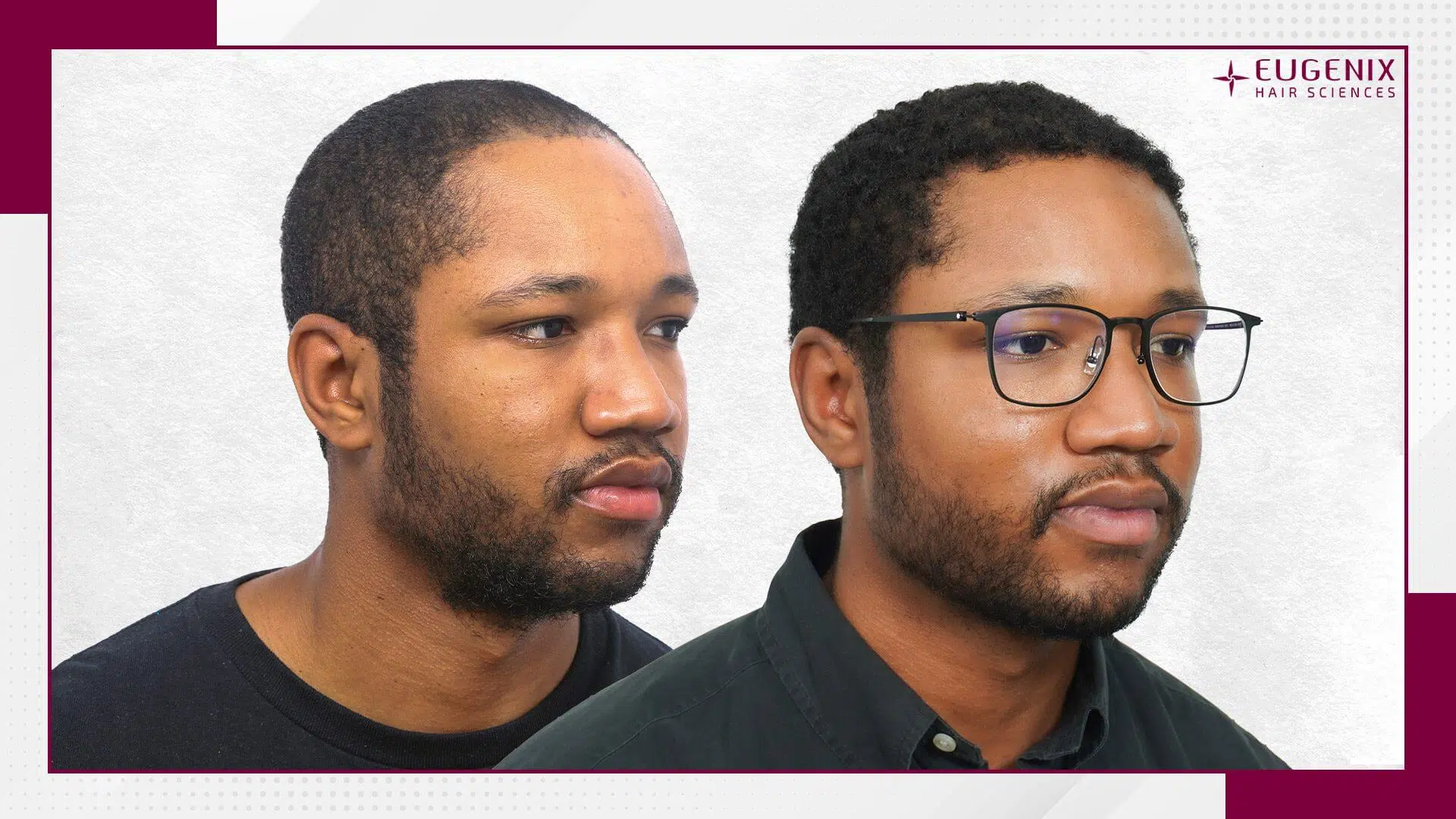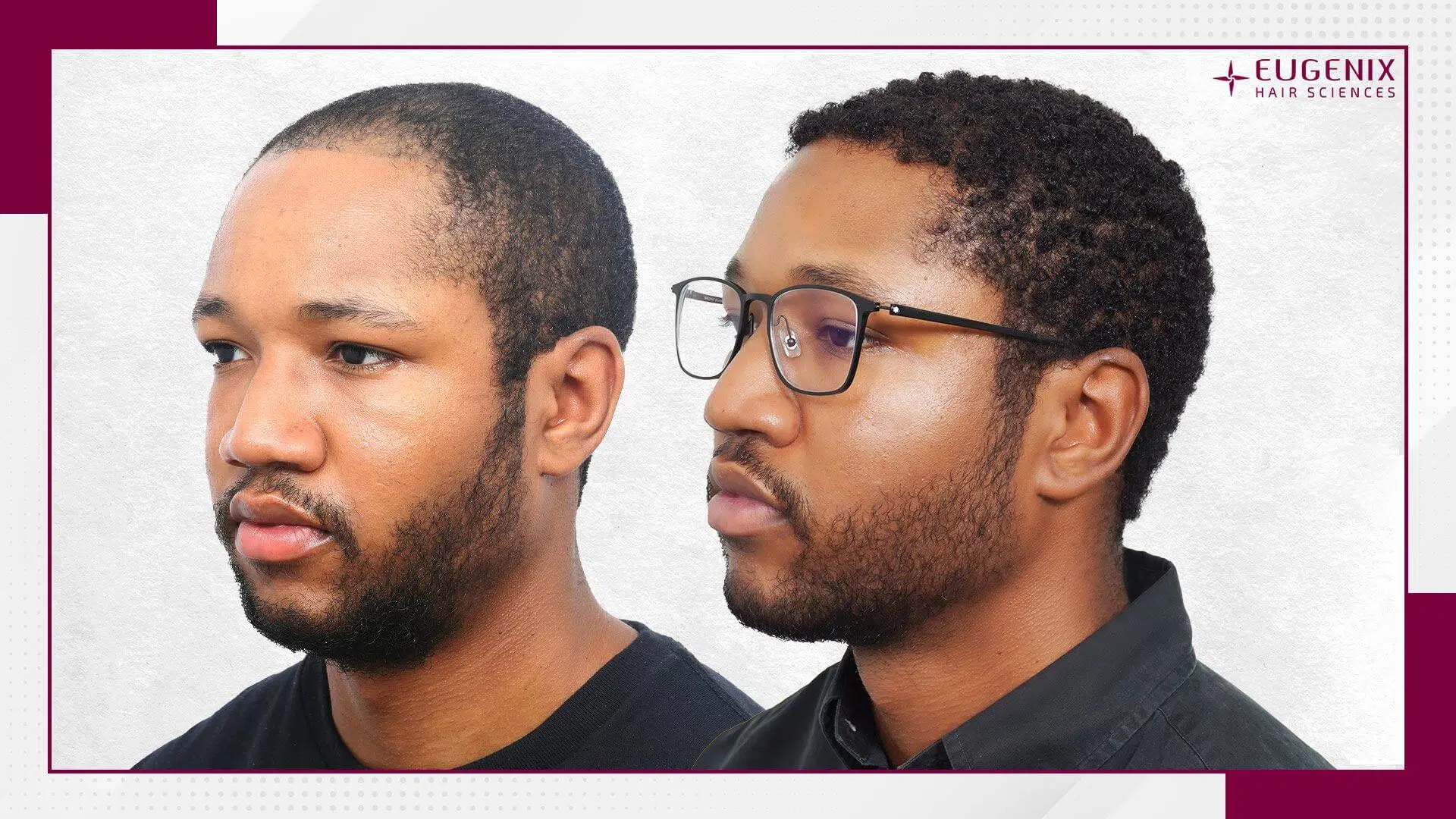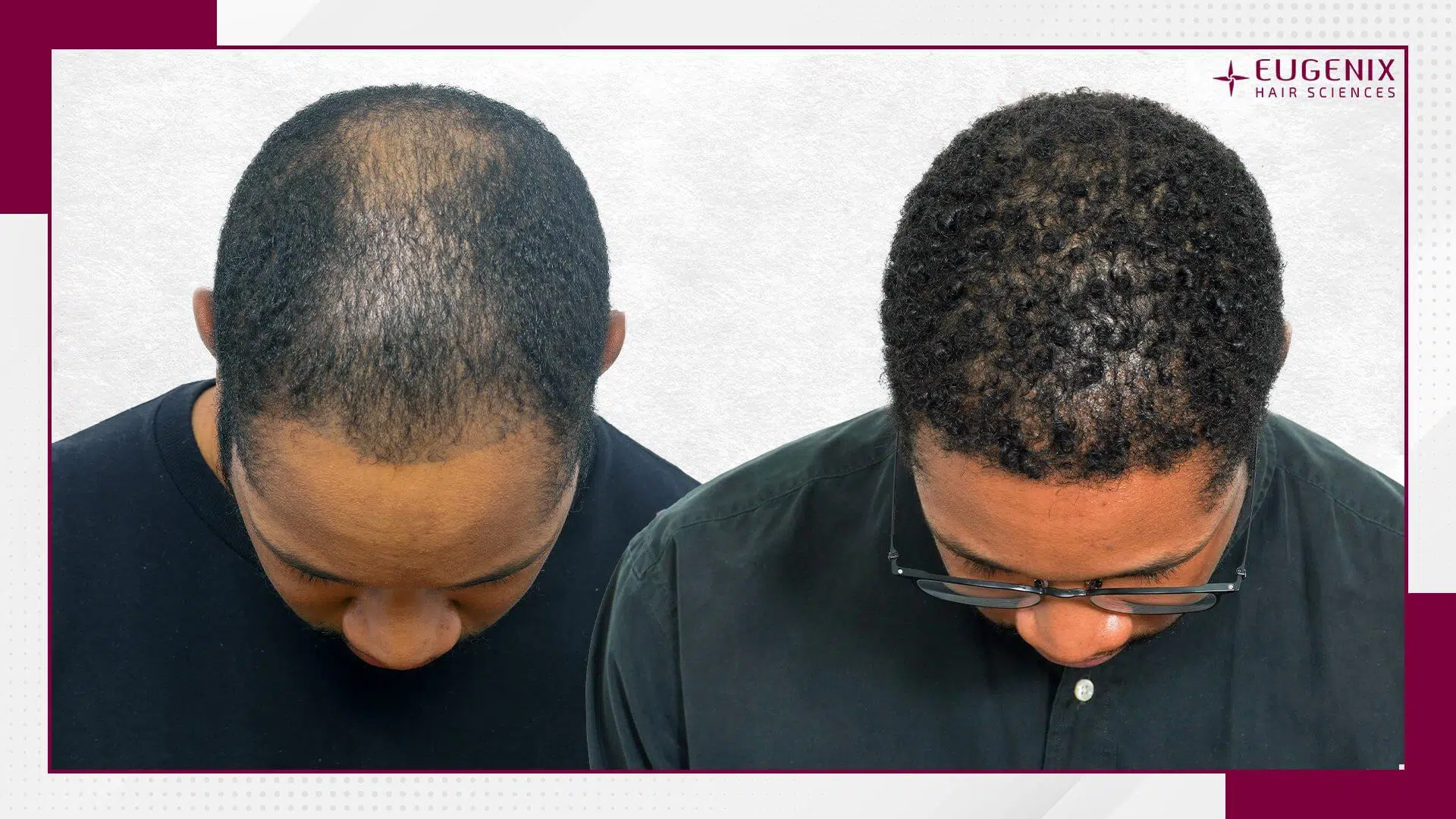Best Hair Transplant for Afro Hair
Due to the unique features of Afro-Caribbean hair, many individuals experiencing hair loss or thinning believe they are unsuitable candidates for hair transplant surgeries. This, indeed, has been a persistent myth for quite some time.
In truth, the curly nature of Afro hair bestows a genuine surgical advantage upon the Afro-Caribbean hair transplant patient. The “curl” creates the appearance of increased density while requiring fewer hair grafts.
There is, however, a fundamental caveat to this approach.
Contrary to other hair types, Afro hair grows curly instead of straight, like Asian or Caucasian hair. Hence, treating and restoring Afro and Caribbean hair loss is no facile task. Only a small number of specialists possess the required expertise in Afro-hair transplants owing to their unique hair type.
This is because not only the visible portion but also the roots of Afro-Caribbean hair are curly. Consequently, the hair transplants for Afro hair need to be implanted in slightly larger incisions and with less density because they occupy more space. Extracting Afro hair for transplantation necessitates a masterly touch, a skill that only a select few surgeons truly possess. As donor strands are frequently damaged during extraction or the hair is simply too curly to be transplanted successfully. Moreover, it is a fact that Afro-Caribbean hair is typically much thinner than Caucasian hair, requiring precise technical expertise.
Locating an apt solution for Afro-Caribbean hair can prove to be a daunting task. It can be exasperating to search for clinics and professionals who are adept at Afro hair restoration. However, with us, you need not worry about the proficiency of a hair transplant surgeon. We boast a team of accomplished surgeons who utilise the best DHT technique for hair transplantation services. This method is virtually pain-free and consistently yields natural-looking results. Thus, place your trust in us for the restoration of your natural curls with assurance and confidence.
The procedure of Afro Hair Transplant is challenging in many ways. The grafts are unique due to their stout and curly nature. The curvature of hair extends into the root of the hair follicle. This makes it difficult for a hair transplant surgeon to move it for transplantation into the recipient site. Special types of punches are needed in such cases. Since people with afro-textured hair prefer to keep short and cropped hair, FUT scars will be visible in such cases.
We have been doing hair transplants in such cases with great success. Their hairline is flatter compared to Asian hair. The whorl on the crown is missing in many cases. A surgeon needs to have a deep understanding of the African sense of hairstyle and the shape and size of the face before attempting such hair transplants. It requires skill and expertise to deal with Afro-textured hair. The transplant of afro-hair should be carried out with care by experts to preserve the natural curl of the hair and avoid scarring after the surgery.
Types of Afro Hair
- Curly: You can discover further subcategories in this category. Generally, afro-curly hair is found to be dry and frizzy. Doctors recommend conditioning such hair timely.
- Wavy: Wavy afro hair is mostly in a pattern. This kind of hair is very good when it comes to styling.
- Straight: If in any case, you have afro straight hair, then curls cannot be your first choice, as it will be too hard for you. But, the good part is that this kind of hair isn’t that frizzy and comes with brittle ends and dryness.
What Causes Hair Loss
Like any other type of hair, even Afro-hair can experience hair loss, if they are not treated well. One can enumerate several reasons for hair loss in Afro scalp. Listed below are a few:
- Telogen effluvium
- Stress levels
- Improper diet
- Traction alopecia
- Genetics
There are many more reasons for male and female pattern hair loss like systemic lupus erythematosus, androgenetic alopecia, lichen planopilaris, frontal fibrosing alopecia, etc.
Hair Loss Treatment
There are several various methods for treating afro baldness in both men and women. Combining Minoxidil and Finasteride, a well-known therapy regimen that can aid in promoting hair growth, are two non-surgical options for treating hair loss. This approach has been demonstrated to be effective in numerous research. However, there is also the possibility to have surgically afro hair transplant procedures, such as an FUE hair transplant, or DHT transplant, which we will go into more detail about below if that doesn’t work for you.
Post-Surgery Care
The period of aftercare following an afro hair restoration often causes concern in many people. Afro hair transplant recovery often takes up to two weeks and is similar to that of other hair types. Before you can clean your hair and start removing surgical scars, you must wait at least five days.
It should be stated right away that afro hair FUE hair transplants are among the most difficult procedures. The nature of afro hair is extremely different from Caucasian hair. This implies a hair transplant facility must have experience with this specific hair type in DHT procedures. The DHT restoration uses the same technique and only calls for a few specific precautions, despite the variations in Afro hair.














